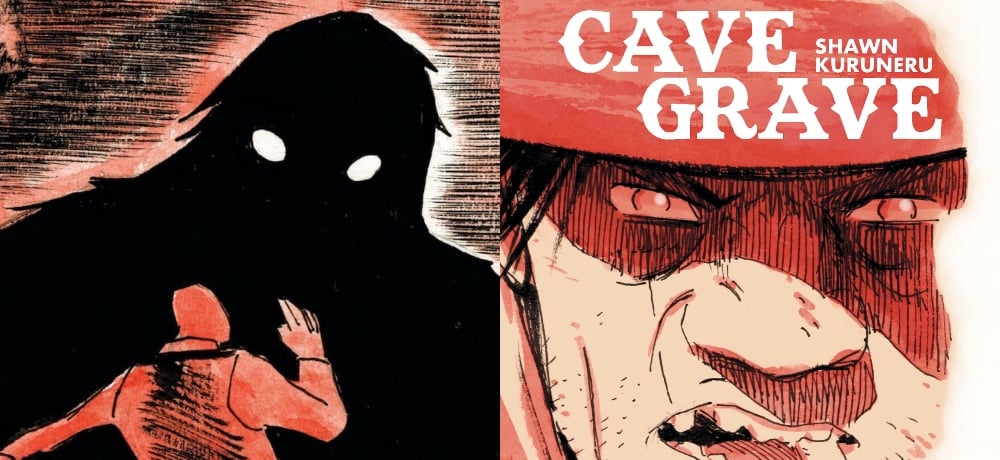





If you’ve been playing video games since the ’90s (or earlier), chances are that you’ve played a game from Warren Spector. The legendary game designer and producer is behind some all-time great games including System Shock, Deus Ex, and a number of games in the Ultima series, including Ultima Underworld: The Stygian Abyss in 1992. The Underworld series is back in Underworld Ascendant (due out on November 15th) thanks to OtherSide Entertainment, and I recently had a chance to visit the studio, check out the game, and interview the creative team.
During my time with Warren Spector, he talked about leaving teaching to return to gaming, his role in the development of Underworld Ascendant, trying to recreate that experience he felt the first time playing Dungeons & Dragons, and more:
How did you get involved with OtherSide Entertainment’s Underworld Ascendant as Studio Director?
Warren Spector: I was teaching at the University of Texas. I created a game development program that ran for three years, and about midway through that I realized that, as much as I enjoyed teaching, I was not a teacher and I still wanted to make games. And right around the time my three-year commitment was ending, Paul [Neurath] came along and said, "I'm starting a new studio. Do you want to go in with me?" And I just said, "Yeah!" We've been working together since Paul did a game called Space Rogue in 1989.
I was the producer on the original Underworld and Underworld 2 and System Shock, so we've worked together a long time and I jumped at that opportunity. He knows me well enough to know I wasn't going to leave Austin, Texas, so I set up my own studio down there. It's working on System Shock 3 now, and I've been assisting up here. All credit to Joe Fielder and Paul. This is their game, not mine. I was a creative consultant on it and continue to consult, but that means helping Joe. It’s the first time he's leading a project, so I’m going over design documents with him and making sure that he was building an immersive simulation like we want to build and giving him pages notes on every build. I've been playing builds for a long time.
And then, I've been deeply involved in the narrative, because it's all well and good to let players do amazing stuff and interesting, unique stuff, but if there's no reason or context for it, it's really kind of falling flat.
How connected is Underworld Ascendant to the original two games?
Warren Spector: Well, there certainly won't be any requirement that you played the earlier games or know the earlier games. For players who have played the earlier games, characters like Cabirus are back and the lizard men are back. The Silver Seed and the Silver Sapling are back, but more than any specific object or character, one of the things that set Underworld apart, was that the world felt like a character. It felt like a believable place, and this game has the feeling of that same place, but after a disaster has befallen it. So you can see the transition, and this space that you're playing in now was once this thriving community of lizard men, knights, and dwarves. You can see how this world came to be if you know what the old world was like.
This world has such a rich mythology. Where do you draw your inspiration from when helping build the narrative and this world?
Warren Spector: Joe was really inspired by classic Greek and Roman mythology, so I think that would be where the biggest shift comes from most traditional fantasies. He didn't want to just make something up from scratch. He wanted to pull from things that already have resonance with people, so I think that would be the biggest inspiration, and all credit to Joe, because that really came from him.
Looking at your past game work, whether it be on Underworld or System Shock or Deus Ex, how are those experiences shaping your feedback and direction on this game?
Warren Spector: Other people may not see this, but every game I've worked on is like the same game. They're all like steps on an evolutionary path, and you just try and do it better and better. What you're trying to do better is empowering players to tell their own story.
That's what I think games are all about. It's not how clever and creative I am. It's how clever and creative you are, you know? It's about me getting off the stage and letting the player [become] the actor. And you'd think that would be a really common thing for game design, but it's not.
Game designers want to create puzzles that stump players, and the joy for players is to figure out how to solve the puzzle. But in our games, it's not about that. It's about creating problem spaces and then letting players solve the problem the way they want. And that kind of thinking comes through in every comment I've ever made to Joe or anybody else. The only thing I think is important about games is that it allows everyone to become a storyteller.
The magic of our media is that we're the first medium in human history that lets noncreative people or creative people be the authors of their own tales. That's behind everything I did in Deus Ex, Epic Mickey, System Shock, Thief, and now Underworld Ascendant. It better be everything about System Shock 3.
That’s very apparent in the way the skill tree is set up, how you interact with the characters, and I was amazed that people I had been playing with were solving puzzles in completely different ways than I was. I can’t wait to show this to my friends that play D&D because I think they will really love this.
Warren Spector: I've said many times that my entire career as a game developer has been about trying to recreate the feeling I got the first time I played Dungeons & Dragons.
D&D is magical and it's about players telling their own stories. It's about telling stories with other players and with a Dungeon Master. It's not about the Dungeon Master telling you a story. It's about you telling one with that person. And that's what we want Underworld Ascendant to be.
What's on the horizon for you? I know you’re working on System Shock 3. How is everything going with that?
Warren Spector: It's going well. I don't want to steal Underworld Ascendant's thunder, but it's definitely a game in the same vein. Again, every game is a stepping stone towards ultimate player expression. We're bringing back SHODAN, obviously one of the great villains in digital game history, and we're going to be looking into how SHODAN came to be, we're going to be talking about what happened to some of the characters in some of the earlier games, and Citadel Station from the original game will be coming back in some form. I'll be a little mysterious about that…
And some of the iconic enemies will be coming back, but in a very modern form. Amazingly enough, it's not 1994 anymore, so we're bringing it into the 21st century, well the 22nd century.
---------
Read on for the Underworld Ascendant synopsis and trailer, and visit the game's official website for more information!
"From the creative minds behind the acclaimed Ultima Underworld®, System Shock and Thiefseries, in Underworld Ascendant®, Paul Neurath and Warren Spector’s OtherSide Entertainment challenges you to think creatively in an interactive sandbox environment.
You are summoned by a mysterious figure to The Stygian Abyss, a dangerous and constantly evolving dungeon world imperiled by the looming threat of the beast Typhon. To save this world, and yours – you must overcome complex challenges, uncover lost secrets and gain favor with factions to maximize your knowledge and strength. Utilize your environment to stack the odds in your favor. Devise the ideal plan to overcome the challenges you face or dive in and think on your feet.
Each decision holds great opportunity and grave consequence. What you leave behind will be engraved on the lives of others. Assuming you survive…"